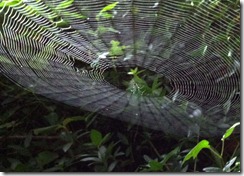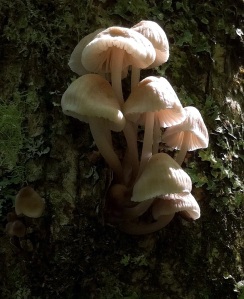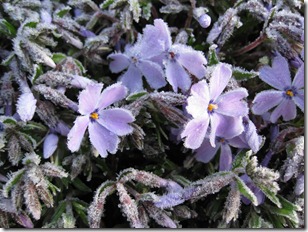 Saturday night Barbara and I were watching a Masterpiece Theater production of Vita Sackville-West's All Passion Spent. The main character is 85, has just lost her husband (formerly Prime Minister), is stepping out of his long shadow, living on her own and taking great delight in making both new friends and a new garden. She's clearly following a deep thread now that she had let go of in the past. One of her sons visits and can't quite fathom why she's behaving 'so uncharacteristically'. Her husband, his father, has just died and she's moved on her own to Hampstead (the boondocks in those days). The implication is that she's not mourning suitably.
Saturday night Barbara and I were watching a Masterpiece Theater production of Vita Sackville-West's All Passion Spent. The main character is 85, has just lost her husband (formerly Prime Minister), is stepping out of his long shadow, living on her own and taking great delight in making both new friends and a new garden. She's clearly following a deep thread now that she had let go of in the past. One of her sons visits and can't quite fathom why she's behaving 'so uncharacteristically'. Her husband, his father, has just died and she's moved on her own to Hampstead (the boondocks in those days). The implication is that she's not mourning suitably.She slowly surveys the garden and her eyes begin to twinkle. "This is a time to lay back against death," she tells him, "and to examine life with the sound of bees in the background."
Finding the bee pictured above on what might have been her last night put me in something of the same frame, a strong feeling--two parts warm, one part chill. Most everybody at some point begins to realize, to sense somewhat profoundly, that life, our own life, inescapably, has limits. There's a sorrow that comes with this. And a deep gratitude--we will lose all that we have, but Ah, what we have!
It was grand to see this particular bee all covered with dew in the morning, slowly moving one antenna at a time, and not t0 see her at all later in the day, neither dead on the basil nor the ground below it. All her passion was not spent and perhaps she'll choose to wake up wet with dew again before her end of days.






